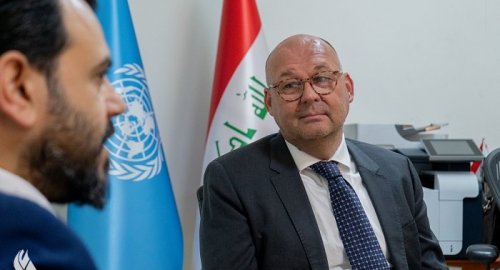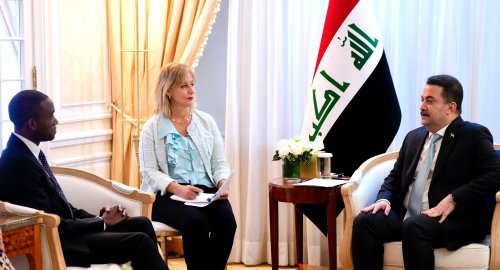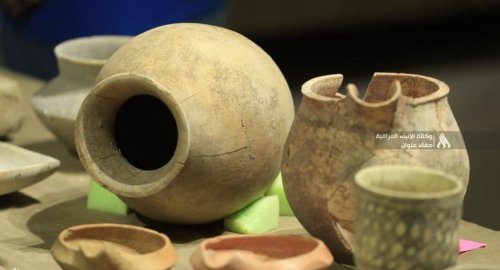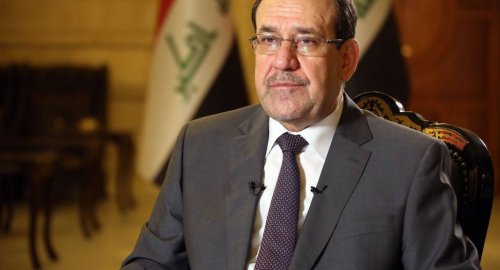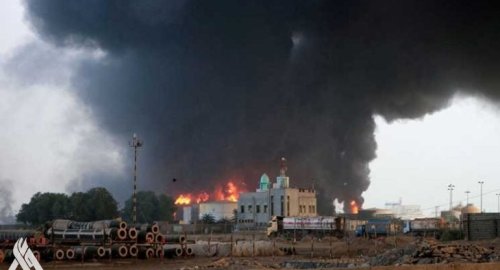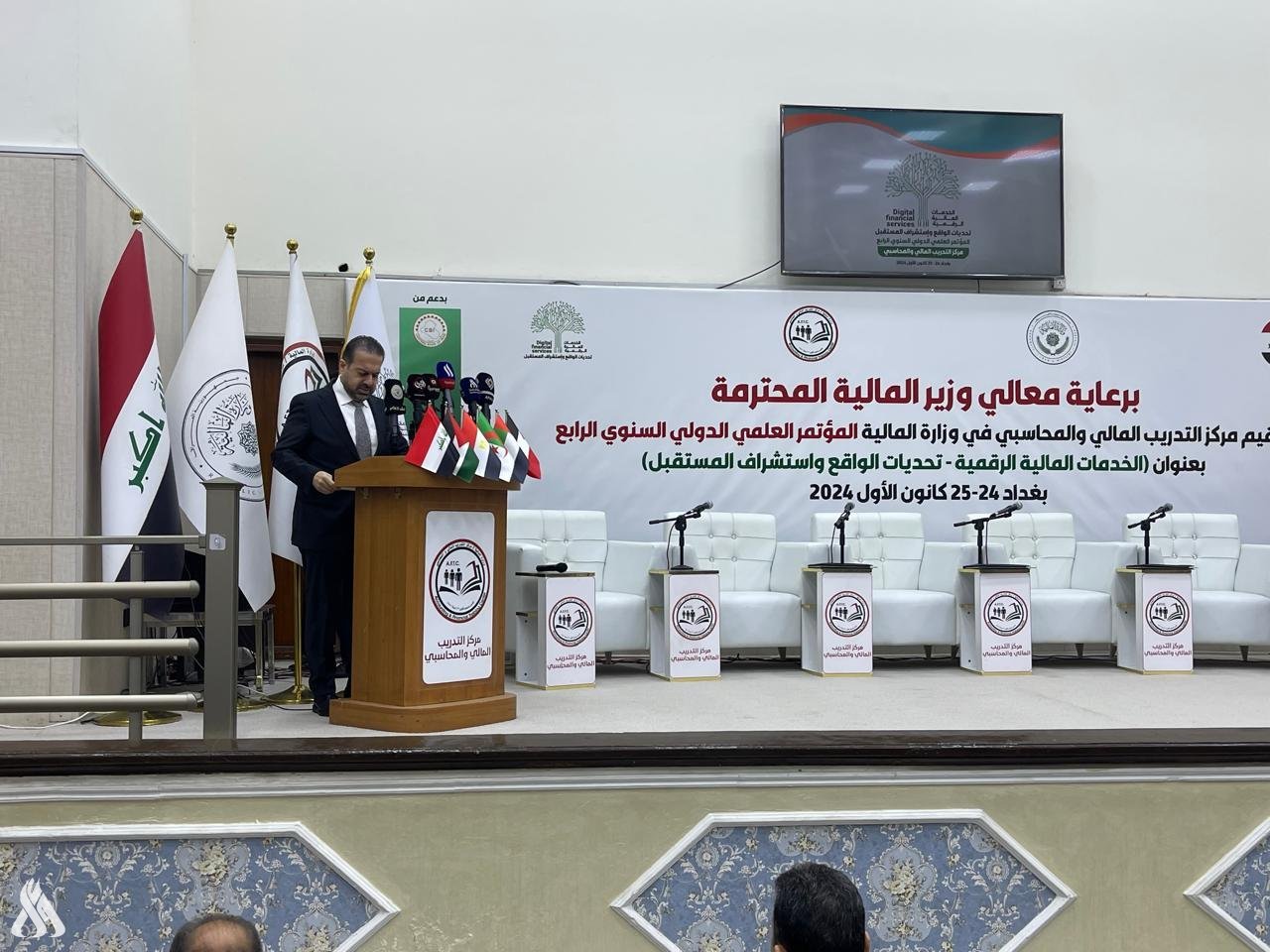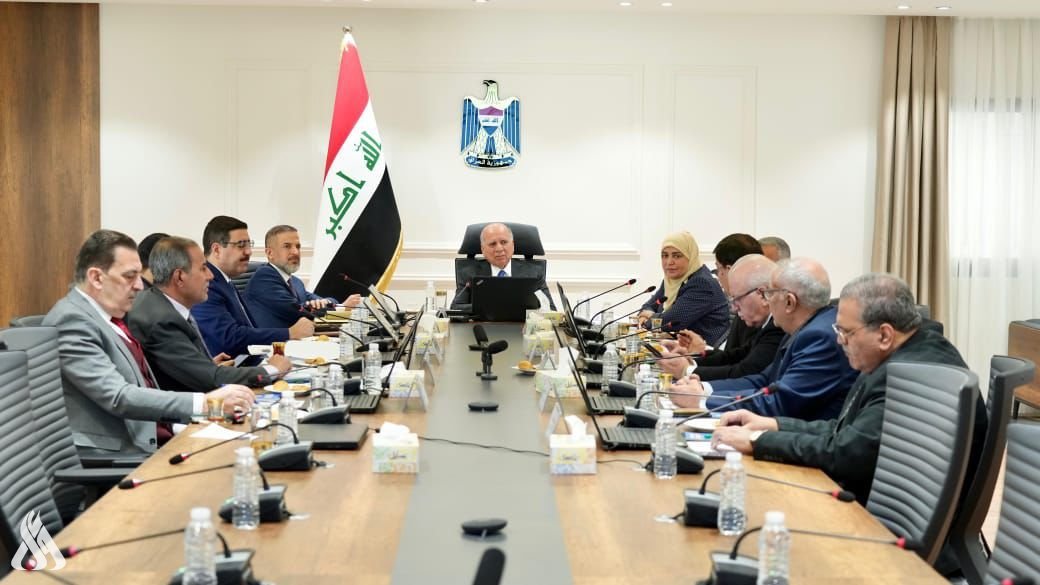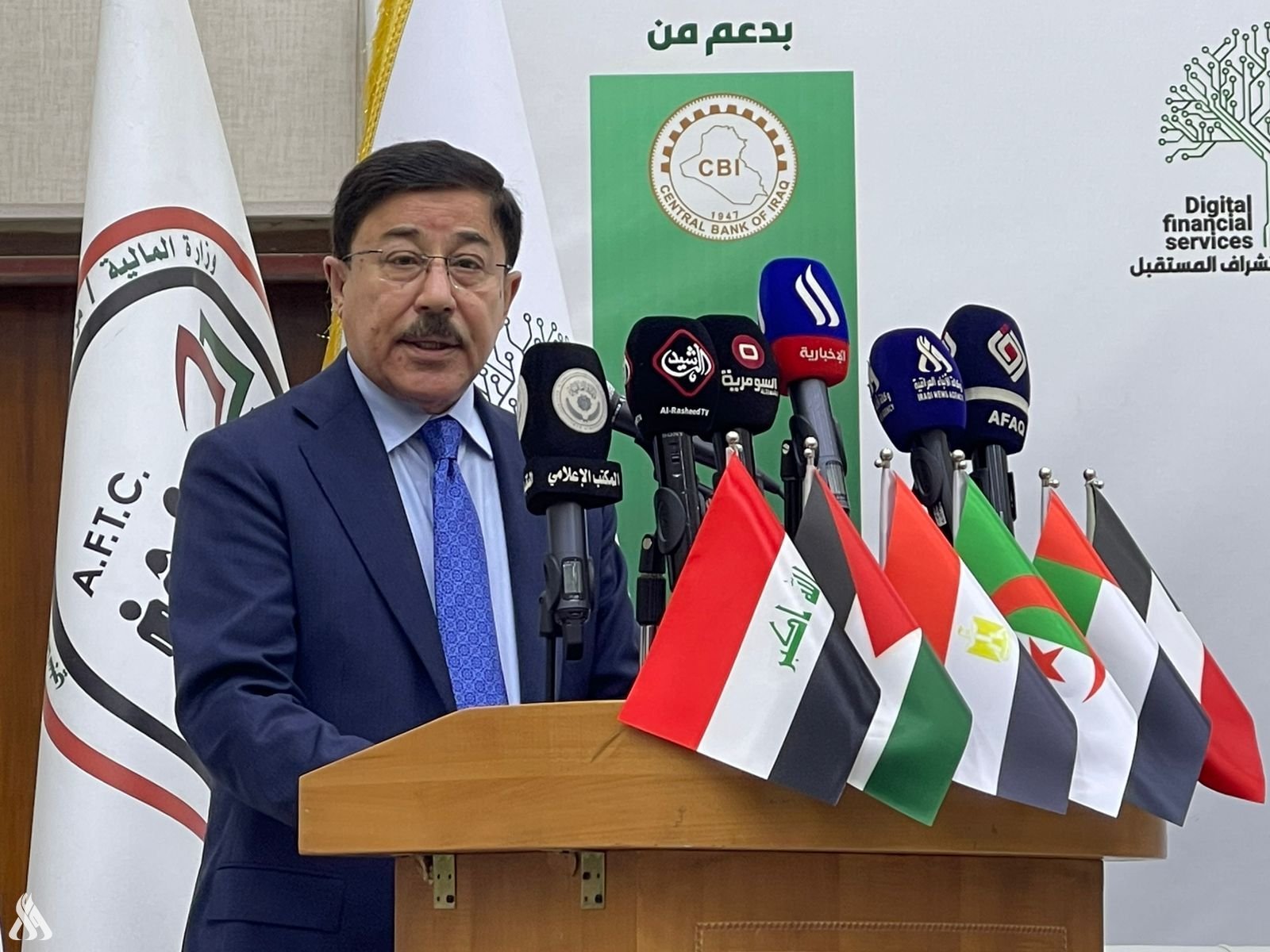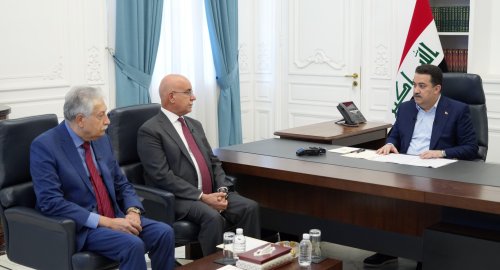
PM Al-Sudani Stresses Importance of Promoting ‘Made in Iraq’ Across All Industrial Sectors

- 2-11-2024, 14:11
Baghdad-INA
Prime Minister Mohammed S. Al-Sudani inaugurated on Saturday, Al-Mansour and Al-Mustaqbal pharmaceutical plants as part of the government’s program to support the localization of the pharmaceutical industry and increasing self-sufficiency rates.
“Prime Minister Al-Sudani affirmed the government’s commitment to developing and expanding the local pharmaceutical industry to achieve pharmaceutical security through the localization of the industry and support for national products,” the media office of the prime minister said in a statement, received by The Iraqi News Agency-INA. “He highlighted that contracts for locally produced medicines have tripled, reflecting a positive indicator”.
The statement added , “Prime Minister Al-Sudani emphasized that the growth of the pharmaceutical industry has prompted the government to support and provide all necessary advantages to ensure the success of these projects starting with banking assistance and sovereign guarantees for the projects. He confirmed that pharmaceutical company registrations are proceeding smoothly and that comprehensive detailed instructions have been issued to facilitate technology transfer to national factories and partnerships with specialized foreign companies and the private sector”.
The statement further stated that ,"Prime Minister Al-Sudani mentioned the importance of establishing the ‘Made in Iraq’ concept as a collective national goal, emphasizing the need to meet the requirements for all chronic disease treatments before mid-next year, as well as cancer treatments in collaboration with the private sector".
Al-Mansour pharmaceutical plant, which resumed operations following government decisions to localize the pharmaceutical industry, includes two production lines for therapeutic syrups with an annual capacity of 14 million bottles and two production lines for tablets with an annual capacity of 140 million pills. It also features a facility for producing cancer treatment drugs, a plant for IV solutions, and a production line for eye drops.
Al-Mustaqbal plant will produce more than 300 pharmaceutical types. It includes IV solution production with an annual capacity of 18 million bottles, providing over 15 types of life-saving drugs, ampoule production with an annual capacity of 110 million ampoules, and eye drop production with an annual capacity of 15 million containers, designated for the production of more than 60 types of medicines, including antibiotics. Additionally, It will produce anti-cancer drugs, with agreements in progress to acquire the technology required for manufacturing over 12 different types of these medications.
10,000 artifacts returned during the current government’s term
- Investigations and reports
- 09:55
Putin: Russia seeks to end conflict in Ukraine
- International
- 09:32
3 martyrs and 11 wounded as a result of the Zionist aggression on Yemen
- International
- 07:46
US Central Command: We killed ISIS terrorist leader Abu Yusuf in Syria
- International
- 24/12/20
7 ISIS elements arrested in Kirkuk
- Security
- 24/12/20
